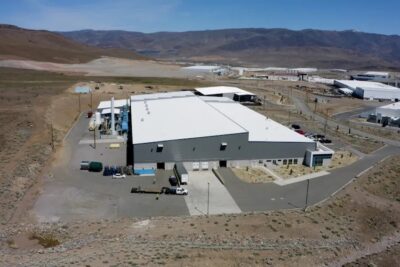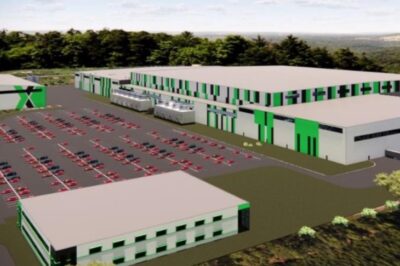Britishvolt begins construction on Blyth factory
Preliminary work has begun on Britishvolt’s battery cell factory in the northern English county of Northumberland. The actual construction of the production facility is scheduled for late autumn or early winter of this year. The planning permission for the large-scale project is dated 6 July 2021.
++ This article has been updated. Kindly continue reading below. ++
Specifically, Britishvolt has commissioned its construction partner ISG with the preliminary work. As part of this, the site will be cleared, and preparatory steps will be taken for the utilities and infrastructure of the construction site. Planning permission for the cell factory was granted unanimously by Northumberland County Council a few weeks ago. The project in Blyth is to be built in three phases of ten GWh each, reaching a full capacity of 30 GWh by the end of 2027.
Britishvolt describes the start of preliminary work as “another milestone on our way to building the UK’s first gigaplant”. Richard McDonell, the project director, says that the cells will be produced in a particularly sustainable way. It is not yet known which cell chemistry and formats will be built in Blyth – but it will probably not be cobalt-free cell chemistry given a recently concluded Glencore deal. Britishvolt specified that the cells would “primarily” be for use in the automotive industry in an earlier announcement.
The production facility in Blyth will be built on the 95-hectare former site of the town’s power station. The start of production is still planned for 2023, according to the latest Britishvolt announcement. Fully ramped up, the plant is expected to create around 3,000 direct jobs and a further 5,000 in associated supply chains.
And to return to sustainability in the production process: In an earlier announcement, Britishvolt announced its intention to use renewable energy to run the plant. The use of Norwegian hydropower via the North Sea connection NSN Link, which is currently under construction, is to be examined. On the British side, the coastal town of Blyth serves as the starting point for the submarine cables. However, Britishvolt does not mention a new status for examining this option in its current communication. It is a fact, however, that the British company is relying on Siemens for production technology as well as design and simulation tools.
The UK is known to be keen on ramping up its own battery cell production on the island. According to a report in the Guardian in mid-June, the government is said to be actively involved and to be holding or to have held talks with six companies. In recent months there have been reports of efforts in this field. For example, an electric car battery factory will be built at Nissan’s Sunderland plant in the UK, operated by Chinese battery manufacturer Envision AESC. It is intended to complement the existing AESC plant on-site with its current capacity of 1.9 GWh per year (cells are built for the 40 kWh pack of the Nissan Leaf, among others). In addition, there is talk of quadrupling production by 2024.
As reported, another gigafactory is likely to be built at the airport of the industrial city of Coventry. According to the new report by The Guardian, talks are underway with InoBat Auto. The building application for the large-scale project was submitted in mid-July.
Update 01 November 2021
Britishvolt can apparently count on a grant from the British government of 200 million to 250 million pounds (about 236 to 295 million euros). This is reported by the Financial Times with reference to insiders. A final funding commitment could be made “within weeks”. In addition, Britishvolt is in advanced talks with several potential customers for its battery cells, including Stellantis, Arrival, Tevva Motors and Lion Electric, according to the report.
A spokesperson declined to comment on the talks but said the UK government was “firmly committed to ensuring the UK continues to be one of the best locations in the world for automotive manufacturing, as highlighted by the recent announcement of the new Envision AESC gigafactory in Sunderland”.
britishvolt.com, ft.com (update)





0 Comments